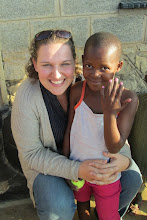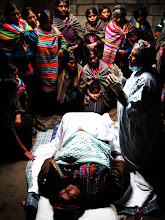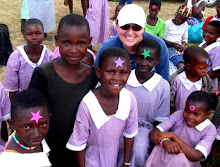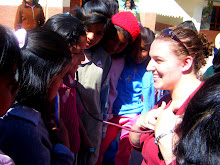In June 2014, several of my PCV friends, Will, Amanda, Jiggetts, and I, took off for a 10 day vacation in Mozambique. The trip there are back was trying, but oh-so-worth-it the moment we stepped foot in the crystal blue, lukewarm Indian Ocean!

The trip to the coast of Mozambique in south-eastern Africa took us through three countries. On the first morning, we rallied together in Maputsoe, to cross the Lesotho border together and take a taxi from Ficksburg. The trip to Johannesburg was typical, minus an infuriating run in with some corrupt S. African policemen along the way (see my blog-post on Discrimination for the full story)… We arrived in the ever-so-sketchy taxi rank in Johannesburg, where we hired a porter to make the terrifying 5-6 block walk through the dangerous streets of Joburg to the Central Bus Terminal. After a few hours of waiting, we were on an overnight bus to Maputo, Mozambique!
But as all world-travelers know… Nothing ever goes as planned. Our Intercape bus liner refused to wait for us at the border to Mozambique when the border crossing’s computer system went down and we were unable to get our Visa’s. So we stood and watched the giant bus leave, as we waited helplessly in line for a Visa. Luckily, Peace Corps Volunteers are nothing if not resourceful… Ha! We rallied our spirits for an adventure, marveled at our first glimpses of Mozambique as the sun started to rise, pulled on our hiking packs, and started walking! Not far down the road we found a taxi rank,  where we used broken Spanish (which, just for the record, is NOTHING like Portuguese! But little did we know at the time… Ha!) to negotiate a driver to take us the final hour drive into Maputo!
where we used broken Spanish (which, just for the record, is NOTHING like Portuguese! But little did we know at the time… Ha!) to negotiate a driver to take us the final hour drive into Maputo!
Our one day stay in Maputo was brief, but after some quick cat-naps and hot showers at our hostel, we set out to explore the city! Coming from Lesotho, I was SO impressed with the level of infrastructure and architecture. While the Portuguese certainly left most of Mozambique in war-torn tatters when they left, they 
certainly also left behind a legacy of amazing architecture, food, and their language. It was such an incredibly interesting combination of European and African influences, all mixed into one beautiful, tropical country.


In City Hall in Maputo, Mozambique.
The next morning we were back to the road! Only this time instead of a comfortable bus it was a local taxi… But if there’s anything we know, it’s public transport! The taxi to the little beach town of Tofo left at 4:30am, and didn’t arrive until about 4pm that evening… So  needless to say it was a LONG day. But we did get to see a lot of the Mozambiquan country-side… Scattered along the lush, tropical landscape were little family compounds and village clearings. Women in brightly colored African-print wrap skirts toted fire wood along the roads, and sold bananas and cassava roots out of giant baskets. The houses, made of sticks and woven grass seemed the antithesis of rondavals in Lesotho… They were built to be breezy and cool in the heat and humidity of this coastal climate. It was truly beautiful countryside.
needless to say it was a LONG day. But we did get to see a lot of the Mozambiquan country-side… Scattered along the lush, tropical landscape were little family compounds and village clearings. Women in brightly colored African-print wrap skirts toted fire wood along the roads, and sold bananas and cassava roots out of giant baskets. The houses, made of sticks and woven grass seemed the antithesis of rondavals in Lesotho… They were built to be breezy and cool in the heat and humidity of this coastal climate. It was truly beautiful countryside.
At some point during the morning, a very old woman slowly boarded the taxi and took the seat next to me… Since I don’t speak Portuguese nor any of the MANY indigenous languages spoken by the people in the area, I simply gave her a smile and moved my giant pack out of her way. But a few miles down the road, I started to feel queasy. “Do you smell fish?!” I whispered to Will. “Something smells awful!” “Yeah… I definitely smell… something?” We started to search, glancing around the old woman crammed between us in the tightly packed taxi. Eventually, we gave up the search. But when the little old lady departed about an hour later, I looked down in horror. On the floor of the taxi sat a dead fish, that she’d apparently dropped and stepped on. The floor was covered in fish slime, that had spread to cover both of our hiking packs that sat in the aisle. Needless to say, it was a rather smelly trip from there on out… Ha!
And let me tell you… When travelling in Mozambique (or actually, just Africa in general) be cautious of your fluid intake, because one pee-break in 10 hours is simply not enough. Ha! About 6 hours into the trip, we all thought we were going to have a seriously embarrassing problem. But just when it was getting “critical”, the bus pulled to the side of the road, just outside a small village. “This is it!” we all rejoiced, as we watched all the locals on the taxi depart. Clearly the women knew where they were going, so Amanda, Jiggetts, and I fell in line and hoped they were going to a toilet! As it turns out they were, just not one like anything we’d ever seen! “What is this?! What do we do?!” Jiggetts exclaimed as we entered the one-room, cinder-block with a concrete trough running  around the wall. “I have no idea, but I think bo-‘Me are about to show us!” I said, laughing. As we observed the women squat, right in front of each other, over the trough, we realized this was going to be a very public experience. Women lined up front-to-back up on the trough, squatted, and did their business. Afterwards, they picked up a ladle in a bucket of water near the wall and poured water over their waste to wash it down a drain in the corner… Now I should preface this by saying I have used a LOT of different toilets in my travels, but this was a TOTALLY new experience. But nothing motivates you to forge bravely into the unknown quite like a full bladder, with another 5-6 hours on the road still to come… So in we went! Yet another grand adventure to travelling!
around the wall. “I have no idea, but I think bo-‘Me are about to show us!” I said, laughing. As we observed the women squat, right in front of each other, over the trough, we realized this was going to be a very public experience. Women lined up front-to-back up on the trough, squatted, and did their business. Afterwards, they picked up a ladle in a bucket of water near the wall and poured water over their waste to wash it down a drain in the corner… Now I should preface this by saying I have used a LOT of different toilets in my travels, but this was a TOTALLY new experience. But nothing motivates you to forge bravely into the unknown quite like a full bladder, with another 5-6 hours on the road still to come… So in we went! Yet another grand adventure to travelling!
We finally arrived in Tofo exhausted, hot, and convinced we’d never get on public transport again… But it was all worth it the moment we saw our little bungalow right ON the beach. The weather was gorgeous, a perfect antidote to the freezing cold winter we’d left behind in the mountains of Lesotho.


Our beach bungalows in Tofo.

My lovely travelling companions… Dominique, Amanda, Will, Jiggetts, and I.

Tofo Beach

Families gathering food from the ocean in the early morning.

View from our beach bungalow… Talk about paradise, right?!
Each morning we woke up and gorged ourselves on fresh fr uit and fresh baked baguettes, that women all over the village sold out of big baskets for nearly nothing. The fruit was amazing… I swear I think I never had a real banana until I went to Mozambique: half the size, but 10 times the flavor. There were mangos, papayas, oranges, nectarines, GIANT avocados, pineapples, bananas, passion fruit, and dozens of other fruits I didn’t even recognize. In th
uit and fresh baked baguettes, that women all over the village sold out of big baskets for nearly nothing. The fruit was amazing… I swear I think I never had a real banana until I went to Mozambique: half the size, but 10 times the flavor. There were mangos, papayas, oranges, nectarines, GIANT avocados, pineapples, bananas, passion fruit, and dozens of other fruits I didn’t even recognize. In th e afternoons, as we sunbathed on the nearly empty beach, little boys would come buy selling fresh coconuts. The would take out their machetes and with two whacks crack the tops off for us… Then out with the local rum and pineapple! We added it right to the coconut juice in the shell: our version of a pina colada on the beach!
e afternoons, as we sunbathed on the nearly empty beach, little boys would come buy selling fresh coconuts. The would take out their machetes and with two whacks crack the tops off for us… Then out with the local rum and pineapple! We added it right to the coconut juice in the shell: our version of a pina colada on the beach!  We ate seafood for nearly every meal EVERY day… And the manager of our hotel, Beano, was absolutely phenomenal and tracked us down fresh fish for a braii one evening. The ladies and I spent WAY too much money craft and fabric shopping in the village, where I found an amazing hand-carved wooden mask from northern Mozambique. We spent one whole afternoon getting Swedish massages from a local ex-pat scuba-diving, yoga- teaching couple. The entire week was the definition of what a vacation should be! Ha!
We ate seafood for nearly every meal EVERY day… And the manager of our hotel, Beano, was absolutely phenomenal and tracked us down fresh fish for a braii one evening. The ladies and I spent WAY too much money craft and fabric shopping in the village, where I found an amazing hand-carved wooden mask from northern Mozambique. We spent one whole afternoon getting Swedish massages from a local ex-pat scuba-diving, yoga- teaching couple. The entire week was the definition of what a vacation should be! Ha!



A beautiful little mosque in Inhambabane, Mozambique.

We found these local men carving along the roadside outside Inhambabane.





The boys and I, ready for an afternoon of doing NOTHING. :)

The bread woman, who saw us every morning for fresh baguettes! Yum!

Ernesto and his sister worked at the lodge where we stayed, and joined us for a seafood braii one night! Fun!


Did I mention we ate a LOT of seafood?!
The highlight of the trip, however, was Ocean Safari and deep-water snorkeling in the Indian Ocean! A few days into our trip we arr anged to go out with a guide to look for dolphins, giant manta-rays (which that region of Mozambique is famous for!), sharks, and whales. We spent several hours going up and down the coat on the dive boat, but saw NOTHING. So we decided instead to detour to two shallow-dive sites for some snorkeling in the local reefs… I’ve never been snorkeling before, and it took me a few minutes of relaxing to get the hang of my
anged to go out with a guide to look for dolphins, giant manta-rays (which that region of Mozambique is famous for!), sharks, and whales. We spent several hours going up and down the coat on the dive boat, but saw NOTHING. So we decided instead to detour to two shallow-dive sites for some snorkeling in the local reefs… I’ve never been snorkeling before, and it took me a few minutes of relaxing to get the hang of my  breathing. But once I figured it out, I LOVED it. The reefs were absolutely gorgeous… Covered with bright coral, schools of fish, and other creatures. We had a great time, and really started to get the hang of snorkeling.
breathing. But once I figured it out, I LOVED it. The reefs were absolutely gorgeous… Covered with bright coral, schools of fish, and other creatures. We had a great time, and really started to get the hang of snorkeling.



Shots from our guide’s underwater camera, while at the shallow-dive site.

Launching and landing the speed boat in the ocean surf was honestly the scariest part of the whole experience… They’d drag it in with the tractor, and then it was up to us to get it out, hop in, and then hold on for dear life! Ha!
But we were still disappointed… Our guide said it was nearly unheard of to see nothing, so we decided to give it one last shot… The next morning we got up bright and early, and hit the ocean just after sunrise. This time we got lucky almost immediately! We saw multiple pods of dolphins, and giant manta-rays! Each time we spotted something, our guide and driver would guide the boat as close as possible, without scaring the animals and then we’d flip overboard to try to catch glimpses of them while snorkeling. The dolphins were notoriously skittish, and would dive almost before we could even hit the water…. But one of the giant manta-ray was AMAZING. He stayed, swimming around us in giant circles. He was massive, and glided so effortlessly. I was thankful that we’d spent some time practicing snorkeling the day before, otherwise I don’t think I would have been comfortable enough with the mask and equipment to focus on him… But as it was, we climbed back in the boat with some amazing mental images .

The whole gang on Day 2:
Ready to swim with some giant manta-rays!

You can’t see it… But there’s a manta-ray swimming around us!

We saw multiple pods of dolphins VERY close to our boat!

As we travelled further down the coast on the boat, we had the real find of the day… A pod of three migrating Humpback Whales, two adults and one baby. I can’t even begin to described how amazing it was to watch them swim. They were MASSIVE, and beautiful. They moved so effortlessly, at times swimming close enough to our boat that I could have thrown a ball and hit them. We tailed them for more than an hour, mesmerized by them. Without a doubt, it was the coolest animal encounter of my time in Mozambique.

At the end of our seven day trip, I boarded the bus back to Maputo relaxed and rejuvenated. Our trip was exactly the reprieve I needed from winter in Lesotho, and I will always remember is as lush, green, and gorgeous. Truly an adventure in paradise…

With Love from Mozambique… –Mary E.
















































